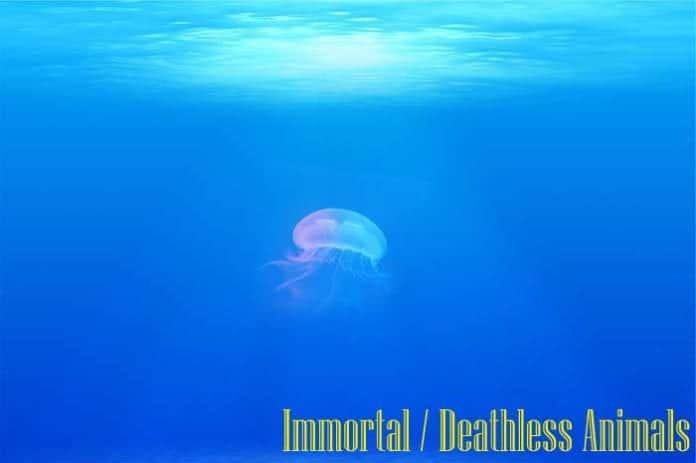
Immortal Animals: For many years, humans have sought absolutely everything to attain immortality. This endeavor includes the search for the so-called “Fountain of Youth” and even freezing cadavers in the hope of preserving and bringing them to life in the future.
There are already many existing plant and animal species that are seemingly deathless if not can live for a very long time compared to the lifespan of humans.
In other words, these organisms could die as they might get killed by either a predator or a destructive environmental change or suffer from a disease. But unlike humans, they rarely die because of old age.
Below are some of these fantastic biologically immortal animals that live in this world. The following list is in no particular order.
Table of Contents
Immortal Animals
1. Aldabra Giant Tortoise
| Binomial Name | Phylum | Class | Order | Family | Genus |
|---|---|---|---|---|---|
| Geochelone gigantea | Chordata | Reptilia | Testudines | Testudinidae | Aldabrachelys |
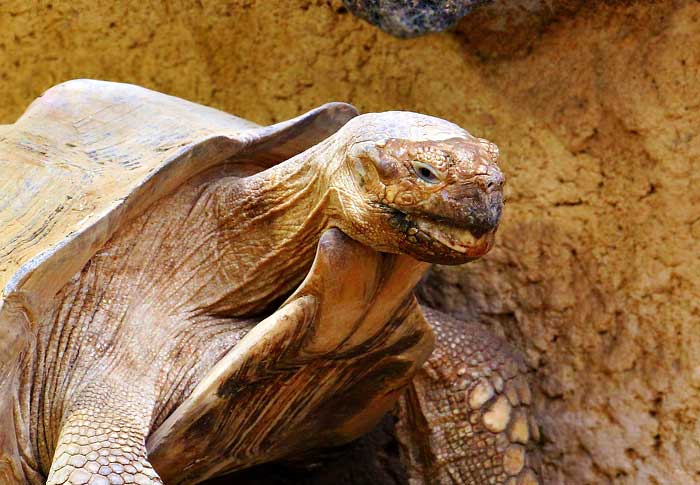
Lifespan: 255 years (confirmed)
As their name suggests, these tortoises are one of the largest species of tortoises in the world. These tortoises take a very long time to grow as they do not reach sexual maturity until over 30 years. The oldest confirmed age of a tortoise was 255 years. This tortoise was Adwaita at the Alipore Zoological Gardens in Kolkata, India. However, scientists have revealed that some may have persisted twice that age.
More Reading: BBC News
![]()
2. Bdelloids
| Binomial Name | Phylum | Class | Order | Family | Genus |
|---|---|---|---|---|---|
| Bdelloidea | Rotifera | Bdelloidea | Adinetida | Philodinavidae | Rotaria |
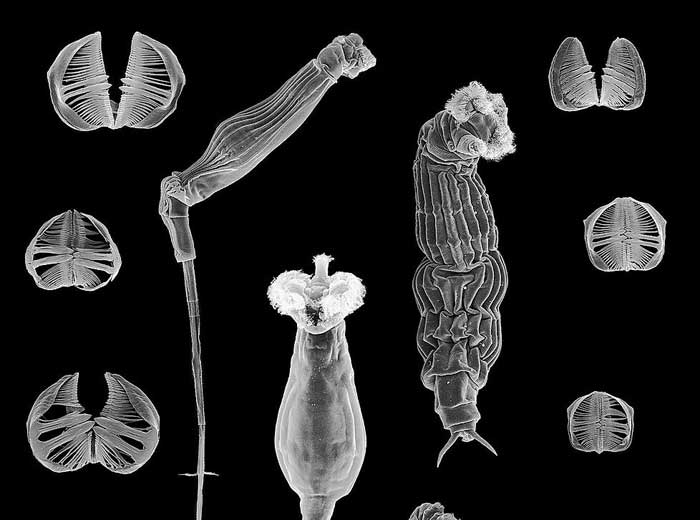
Lifespan: One hundred Million Years (Immortal)
Bdelloids are a group of freshwater rotifers (zooplankton) that can be considered “immortal” in the sense that they can tolerate extreme conditions like high heat, low temperature, and extreme pressure. Furthermore, they can also enter a state of “hibernation” and come back when they wish to do so.
More Reading: ASM Blog
![]()
3. Bowhead Whales
| Binomial Name | Phylum | Class | Order | Family | Genus |
|---|---|---|---|---|---|
| Balaena mysticetus | Chordata | Mammalia | Cetacea | Balaenidae | Balaena |
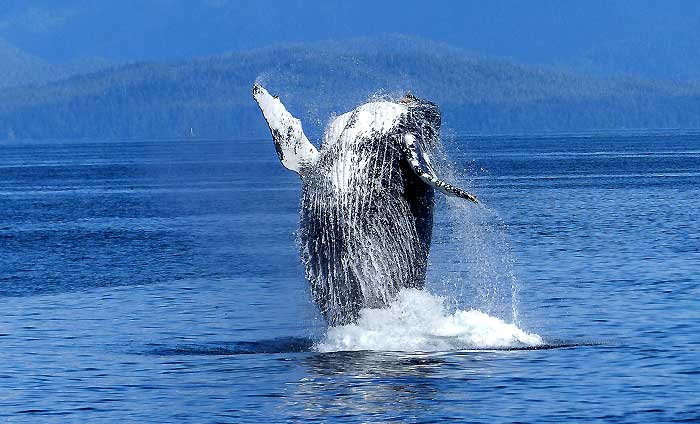
Lifespan: 200+ years
Aside from their enormous size, another astonishing fact about bowhead whales is that they can live up to more than a hundred years. The secret to this? They can repair damaged DNA, hence are prevented from developing cancer. Scientists also suggested that these whales can survive the absence of oxygen even for a long time.
More Reading: ABC News
![]()
4. Clams
| Binomial Name | Phylum | Class | Order | Family | Genus |
|---|---|---|---|---|---|
| Arenaria (steamer clam) | Mollusca | Bivalvia | Myoida | Myidae | Mya |
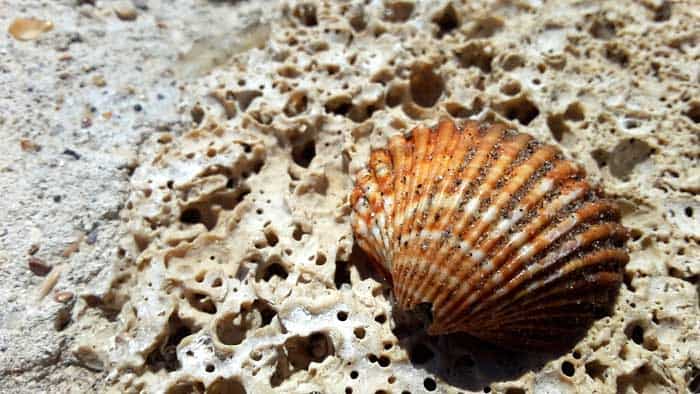
Lifespan: 400+ years
Believe it or not, some clams can live up to more than 400 years. Scientists explain that their long lifespan can be attributed to a process called “slowed cell replacement” but at present, there are still no reasons stating what makes them mature at a slow rate. This process, too, is still up for further studies.
More Reading: Science Daily
![]()
5. Glass Sponges
| Binomial Name | Phylum | Class | Order | Family | Genus |
|---|---|---|---|---|---|
| Scolymastra joubini | Porifera | Hexactinellida | Lyssacinosida | Rossellidae | Scolymastra |
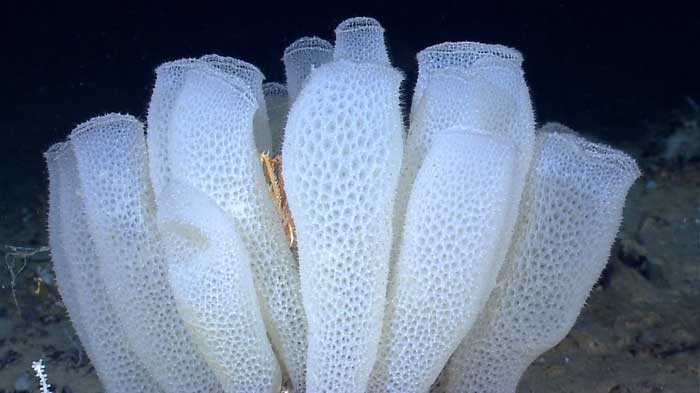
Lifespan: 15,000+ years
Although they’re not necessarily deathless (due to inevitable instances like being eaten by predators), some glass sponges can survive up to 15,000 years! This is because some species can control the growth of their spicules (mineralized structures) at a prolonged rate, hence slowing down their aging process.
More Reading: The Myth of Human Supremacy
![]()
6. Greenland Shark
| Binomial Name | Phylum | Class | Order | Family | Genus |
|---|---|---|---|---|---|
| Scolymastra joubini | Porifera | Hexactinellida | Lyssacinosida | Rossellidae | Scolymastra |
Lifespan: 272+ years
Known as the longest-living vertebrate with an average lifespan of 272 years, this shark does not reach sexual maturity until 150 years. The secret to this is obvious: its incredible ability to withstand the intense darkness and freezing temperature at 2200 meters deep.
More Reading: CNN
![]()
7. Hydra
| Binomial Name | Phylum | Class | Order | Family | Genus |
|---|---|---|---|---|---|
| Hydra | Animalia | Cnidaria | Hydrozoa | Anthomedusae | Hydridae |
Lifespan: Immortal
According to studies, the hydra is one of the few animals showing no signs of age deterioration. Being able to divide continuously and regenerate new body cells, hydras can keep themselves young for long periods (even until forever).
![]()
8. Jellyfish
| Binomial Name | Phylum | Class | Order | Family | Genus |
|---|---|---|---|---|---|
| Turritopsis dohrnii | Cnidaria | Hydrozoa | Anthoathecata | Oceaniidae | Turritopsis |
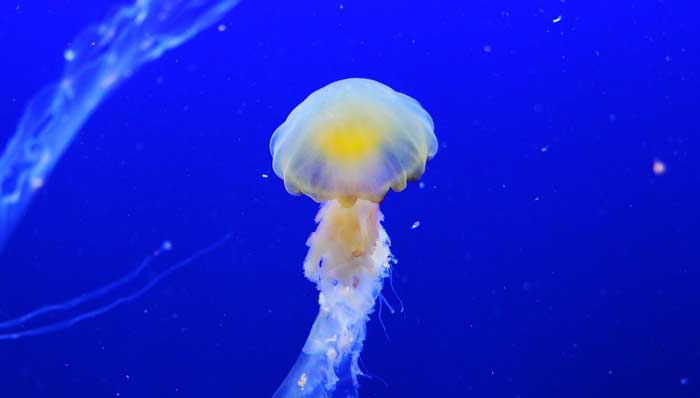
Lifespan: Immortal unless disease or predation
Did you ever wonder if you could return to being a child? This species of jellyfish can! Found in the waters of Japan and the Mediterranean sea, the immortal jellyfish is the only animal which can go back to being sexually immature after reaching maturity. This process can be indefinite if the jellyfish doesn’t die of disease or predation.
![]()
9. Immortal Lobsters
| Binomial Name | Phylum | Class | Order | Family | Genus |
|---|---|---|---|---|---|
| Homarus americanus | Arthropoda | Malacostraca | Decapoda | Nephropidae | Homarus |
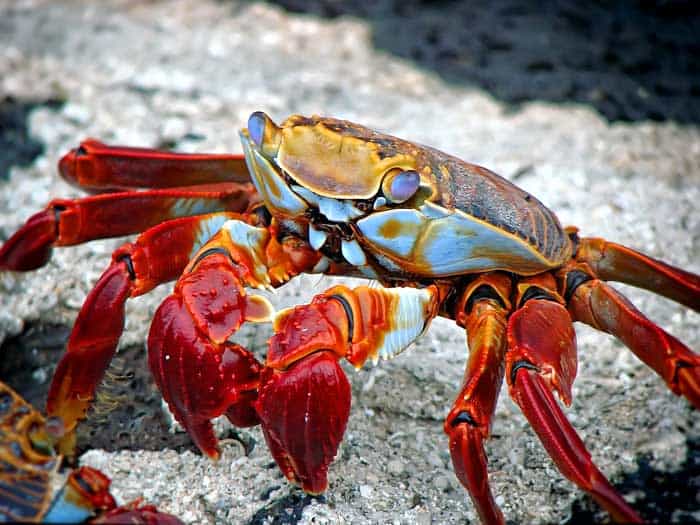
Lifespan: 100+ years unless predation
Scientists suggested that through time, some lobsters can persist and even increase their fertility because of a certain enzyme called telomerase. This enzyme repairs the lost sections of the DNA; hence, “aged” cells are again reverted to being young. Though such a process renders them to stay “deathless“, the exact life span of a lobster is difficult to determine because of the regular molting of an exoskeleton.
More Reading: Sun News
![]()
10. Lungfish
| Binomial Name | Phylum | Class | Order | Family | Genus |
|---|---|---|---|---|---|
| Neoceratodus forsteri | Chordata | Sarcopterygii | Ceratodontiformes | Ceratodontidae | Neoceratodus |
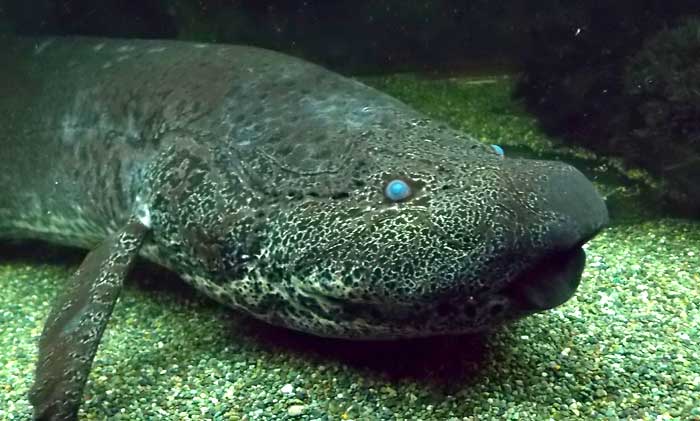
Lifespan: 100+ years
Lungfishes are one of the oldest species of fish on the planet, and unlike other fishes, they can breathe out of the water and survive for long periods. In addition to that, they can slow down their metabolic rate and live even without nutrients for years!
More Reading: Environment Australia
![]()
11. Planaria
| Binomial Name | Phylum | Class | Order | Family | Genus |
|---|---|---|---|---|---|
| Planaria torva | Platyhelminthes | Rhabditophora | Tricladida | Planariidae | Planaria |
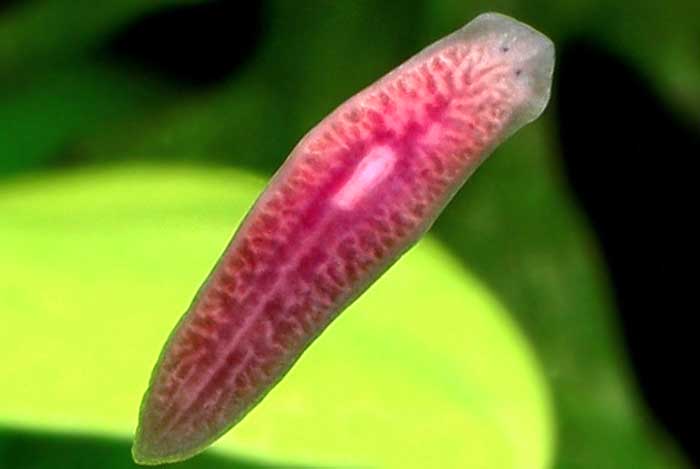
Lifespan: Indefinite
This ubiquitous organism has a simple yet incredible organ system that allows indefinite regeneration of lost body parts. Because of this, this organism apparently can stay young and can never get old (unless it wants to).
More Reading: University of Nottingham Press Release
![]()
12. Red Sea Urchin
| Binomial Name | Phylum | Class | Order | Family | Genus |
|---|---|---|---|---|---|
| Mesocentrotus franciscanus | Echinodermata | Echinoidea | Echinoida | Strongylocentrotidae | Mesocentrotus |
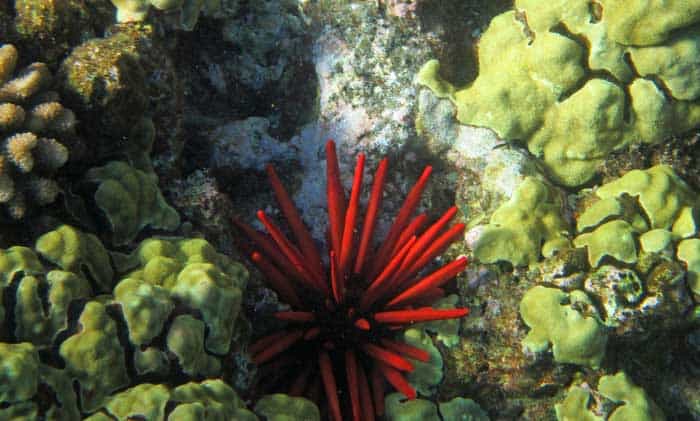
Lifespan: 200+ Years
Living on seaweeds in shallow waters, Mesocentrotus franciscanus or the red sea urchin is considered to be “practically immortal“. Although amazing as it may sound, scientists say these urchins can never stop growing but don’t get old. While they can live up to over a hundred years old, some may reach up to 200 years, given that the environmental conditions are good.
More Reading: Oregon State University
![]()
13. Rough Eye Rockfish
| Binomial Name | Phylum | Class | Order | Family | Genus |
|---|---|---|---|---|---|
| Sebastes aleutianus | Chordata | Actinopterygii | Scorpaeniformes | Sebastidae | Sebastes |
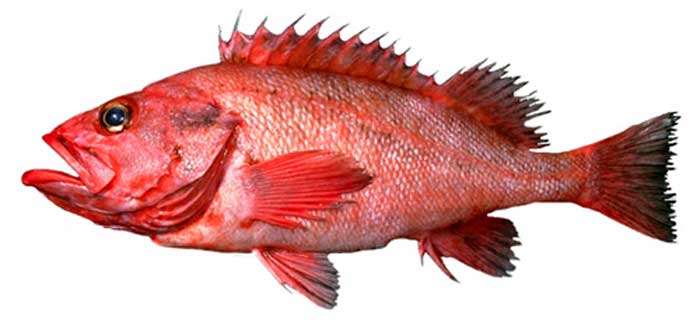
Lifespan: 200+ Years
Coming from the Greek word “Sebastes” which means “magnificent“, this type of rockfish certainly lives up to its name. Known as the longest-living marine fish in the world, it can live more than 205 years old! In addition to this characteristic, the Rough eye rockfish is highly distinguishable because of prominent spines in the lower rim of their eyes.
More Reading: Homer News
![]()
14. Sea Anemone
| Binomial Name | Phylum | Class | Order | Family | Genus |
|---|---|---|---|---|---|
| Actiniaria | Cnidaria | Anthozoa | Actiniaria | Edwardsioidea | Heteromysis S |
Lifespan: 100+ Years
Technically, sea anemones don’t live that long, but they can survive more than a hundred years with favorable environmental conditions! This is because when one of their tentacles or even their “head” gets cut, they can regenerate them into new ones.
More Reading: BBC News
![]()
15. Tree Weta/ Zombie Bugs
| Binomial Name | Phylum | Class | Order | Family | Genus |
|---|---|---|---|---|---|
| Hemideina sp | Arthropoda | Insecta | Orthoptera | Anostostomatidae | Hemideina |
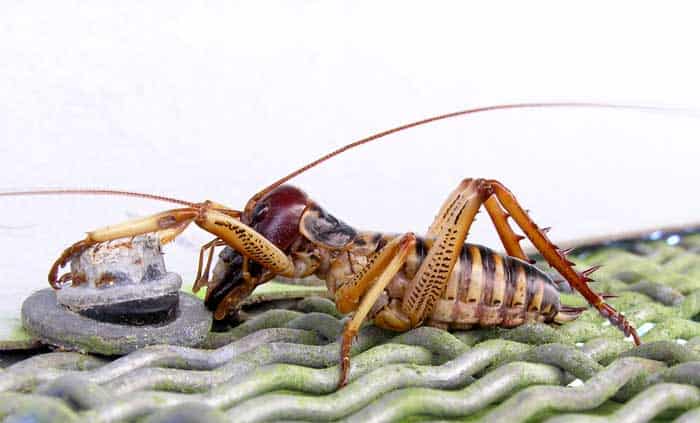
Lifespan: Immortal unless predation
These bugs are very resilient to freezing as they have special blood proteins preventing this. While their hearts and brains are not resistant to freezing and can die completely frozen, they can be ‘revived’ to life when thawed out.
More Reading: Journal of the Royal Society of New Zealand (1992)
![]()
16. Water Bear
| Binomial Name | Phylum | Class | Order | Family | Genus |
|---|---|---|---|---|---|
| Hypsibius dujardini | Tardigrades | Eutardigrada | Apochela | Milnesiidae | Beorn leggi |
Lifespan: Up to Century
Also known as tardigrades, water bears are possibly the toughest animal on the planet. These creatures, though very tiny (not more than 1.5 mm), can survive extreme conditions like boiling (greater than 100°C, freezing (-272.8°C), cutting, drying, or even putting them in outer space! In addition to this, they can tolerate extreme radiation and can stop their metabolism for a long time and “come back to life” when they get in contact with water.
More Reading: BBC News
![]()
Throughout evolution, man has already accomplished many great things but is constantly reminded how fragile he is, like an organism. So while the above-mentioned immortal animals certainly can assist in seeking answers to long life, they can also hold the secrets to why people age in the first place. But then again, the question remains…
Is immortality more of a curse rather than a blessing? What do you think?


















Hi, this article was amazing! Thanks a lot for sharing?? I really needed reading it after this exhausting day, it just felt great knowing that life can happen in many other forms that are way more resilient to the harms of this world?